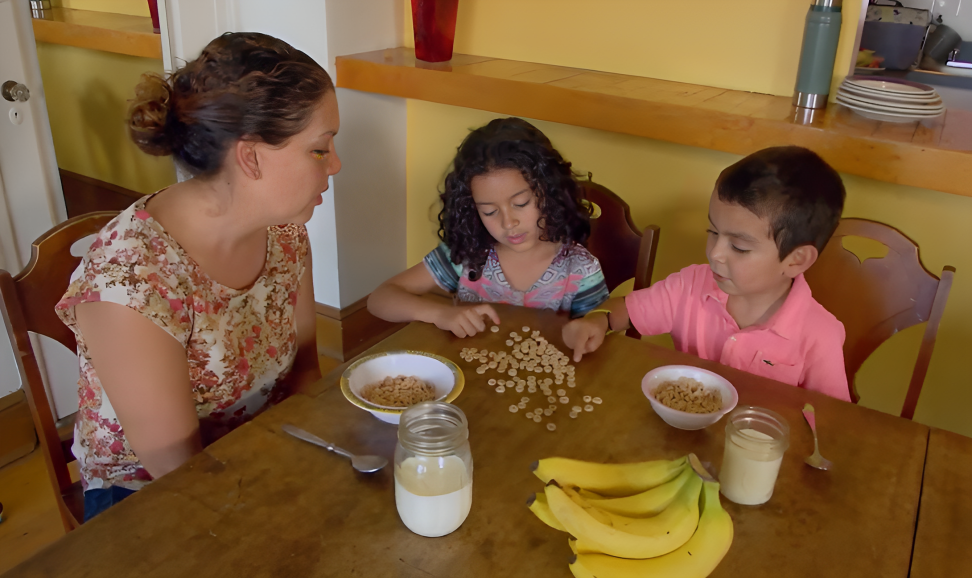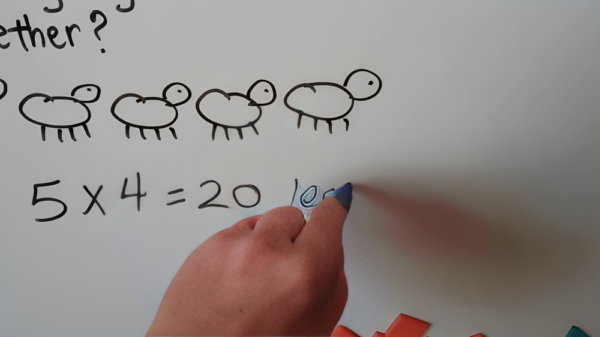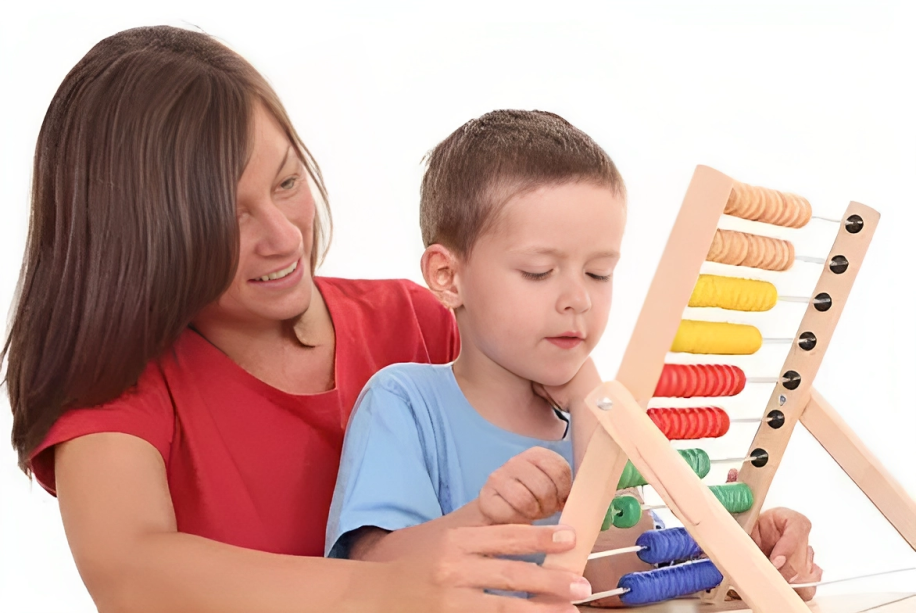HOW TO IMPROVE MATH SKILLS AT HOME
If your child is facing difficulties with fundamental math problems, it doesn’t imply that they are destined to struggle with math indefinitely. Some students may require more time to develop the problem-solving skills necessary for mathematics, while others may benefit from revisiting previous concepts before progressing.
Math is a subject that progressively builds upon itself. A solid grasp of prior concepts is essential to prepare for future lessons. By ensuring your child has a strong foundation in basic math skills, you can pave the way for their academic success.
ad

Due to the structured nature of mathematics, it’s advisable to approach each year step by step, lesson by lesson. It is crucial to enhance your child’s math skills while minimizing any frustrations and challenges they may face. If your child is starting to develop a dislike for math, continue reading to discover ways to Improve Math Skills and boost their confidence, and even make math an enjoyable experience for them!
Ways to Improve Math Skills at Home
1. Understanding the Concepts
ad
The fundamental math skills necessary to progress to higher levels of mathematical learning include:
- Addition: The act of combining two or more numbers.
- Subtraction: Subtracting one or more numbers from another.
- Multiplication: Adding identical sets together in groups (e.g., 2 sets of 3 is equivalent to 2×3, or 6).
- Division: Determining how many equal sets are contained within a number (e.g., how many sets of two are in 12? 6 sets of 2).
- Percentages: Expressing a specific amount in relation to 100.
- Fractions & Decimals: Fractions represent equal parts of a whole, while decimals denote a number of parts of a whole in relation to 10. Both involve numerical quantities that are not whole numbers.
- Spatial Reasoning: Understanding how numbers and shapes interconnect.
Repetition and practice are valuable, but comprehending the underlying concept is crucial before advancing further. Fortunately, there are various effective methods to break down mathematical concepts. The key is to identify the approach that works best for your child.
Math manipulatives can be a game-changer for children grappling with complex mathematical concepts. Moving math from the page to hands-on experiences can aid in visualization and bring concepts to life. Numbers become less abstract and more tangible when counting toy cars or building with blocks. Creating these tangible “sets” of objects can bring clarity to the foundational aspects of math learning.
2. Bringing Math Into Daily Life
Basic math is a part of our daily lives. As you go about your day, you can encourage your child to recognize the mathematics that surrounds them:
- Inform them of your driving speed on the way to school.
- Calculate the discount you’ll receive during your next Walmart shopping trip.
- Help them grasp sports and team statistics.
- While shopping at the grocery store, help your child understand how comparing the prices of different-sized products can save money. Show them how buying the larger box of cereal with a lower cost per ounce can be a wise choice, and enjoy your cereal at breakfast the next day.
Relate math to your child’s interests and demonstrate its everyday application. Math need not be intimidating; by breaking it down and dispelling any fears, you can witness their growing interest in mathematics.

Establishing a daily practice routine can be challenging, especially if your child is not particularly fond of math. This is an ideal opportunity to introduce game-based learning, as mentioned earlier. Alternatively, you can identify an activity that aligns with their ongoing lessons. For instance, if they are learning about squares, you can use math link cubes to create them. Whenever feasible, step away from traditional worksheets and flashcards and seek alternative ways to practice math.
3. Engage With A Math Tutor
If your child is encountering challenges with grasping comprehensive math concepts, consider the option of securing a math tutor from your nearby Mathnasium. Learning styles vary, and there might be that elusive “aha” moment that a dedicated tutor, coupled with some extra time, can help unlock.
The moment when your child finally unravels a challenging math puzzle is truly remarkable. If you’re ready to explore additional support, consider scheduling a complimentary assessment at a nearby Mathnasium.

Mathnasium’s tutors are highly skilled and possess the ability to establish connections with children while imparting math knowledge effectively. With the appropriate approach, your child can develop confidence in mathematics, and who knows, they might even start finding joy in it.
You can arrange a free assessment either online or by visiting a Mathnasium center in your vicinity.
📚 Also Read: Effective Ways To Introduce Children To AI?
4. Sketch & Practice Word Problems
Few things induce panic as effectively as an unexpected word problem. For struggling math learners, the fusion of numbers and words can readily overwhelm the mind. However, it doesn’t have to be this way, and we can leverage word problems to our advantage.

Most word problems simply require systematic deconstruction, step by step. An effective approach is to visually represent the problem. For instance, if Doug begins with five apples and four oranges, then consumes two of each, how many does he have remaining? Sketch it out, discuss it, cross them off, and then tally them up.
If you’ve been guiding your child through the various math challenges encountered daily, many word problems will gradually become more familiar, making them easier for your child to comprehend.
5. Focus On One Concept At A Time
If your child is facing difficulties with their ongoing lesson, it’s not advisable to skip it and return to it later. This is the moment to engage in practice and repetition—reviewing and strengthening the current concept until it becomes clear.
Explore alternative methods to tackle new math ideas. Utilize math manipulatives to make numbers tangible and real. When frustration levels rise, consider taking a brief pause, but avoid the temptation to abandon the task altogether. Once the concept finally falls into place, your child will be eager to move forward.
6. Set Realistic Goals
If your child is lagging behind in math, the solution lies in more study time. However, simply mandating an additional hour of math into their day is unlikely to yield improved results. To witness a positive transformation, the first step is to pinpoint their primary challenges and then set realistic goals to address these issues.
Adding two more hours of practice on a concept they don’t grasp will only lead to heightened frustration. Even if they can work through the mechanics of a problem, the following lesson will leave them equally bewildered. Instead, consider shorter practice sessions and seek additional assistance. Approach the issue from a different perspective—reach out to their teacher, explore online math lessons, or enroll them in a local Mathnasium.
Ensure that the extra time allocated is dedicated to troubleshooting the specific problem, rather than simply reinforcing the belief that math is difficult and unenjoyable.
7. Try Game-based Learning
In the process of practicing mathematics, repetition is undeniably important, but it can quickly become monotonous. Nobody relishes the idea of endlessly transcribing their times tables. If the journey of learning math has turned into a tedious task, there are ways to infuse fun into it!

Utilizing game-based learning provides an exciting avenue to reinforce previous lessons and engage with new concepts. It has the potential to transform repetition into an enjoyable and captivating experience. Game-based learning can take various forms, such as playing family board games, card games, or utilizing educational apps.
8. Embracing Technology to Improve Math Skills
While traditional math learning often involves pen and paper, there are numerous alternative ways to enhance numerical skills in today’s technology-driven world.
Your child can access virtual and live math courses to tackle challenging concepts, or engage in a variety of online games that involve solving math puzzles while having an enjoyable learning experience.

These technological advancements can cater to every child’s math learning needs, regardless of their preferred learning style or study approach. If your child is a visual learner, there’s a website or app tailored to that style. If they thrive in group settings, you can readily find online resources to support their learning. Rather than repeating the same lessons from their math class endlessly, consider diversifying and exploring new approaches, and observe how the learning process becomes more effective for your child!
FAQ’s
How can I help my child improve their math skills when they’re struggling with fundamental math concepts?
When your child is facing difficulties with fundamental math problems, it’s important to break down the concepts step by step, using various approaches such as visual representation and hands-on experiences with math manipulatives. This can make math more tangible and understandable.
What’s the best way to help my child develop a strong foundation in basic math skills?
To establish a solid foundation in basic math skills, it’s crucial to relate math to your child’s daily life, explore alternative learning methods, and engage in daily practice. Game-based learning, integrating math into daily activities, and seeking extra help when needed are effective strategies.
How can I encourage my child to embrace math and reduce their fear or dislike for the subject?
You can encourage your child to embrace math by making it relatable to their interests, incorporating technology and game-based learning, and avoiding a repetitive and monotonous approach. By taking a more engaging and varied approach, you can reduce their fear and make math enjoyable.
Are there specific strategies for dealing with word problems that cause anxiety for my child?
Word problems can be made more manageable by visually representing them and breaking them down into steps. Encourage your child to sketch out the problem, discuss it, and use visual aids to help them grasp the concepts embedded within the word problem.
How can I balance practicing math without overwhelming my child with too much repetition?
It’s essential to avoid overwhelming your child with excessive repetition. Instead, focus on shorter, more frequent practice sessions. It’s also advisable to diversify practice methods, explore game-based learning, and ensure that extra time spent is dedicated to troubleshooting specific problems.
What are the benefits of embracing technology and game-based learning to improve math skills?
Embracing technology and game-based learning can make math more engaging and enjoyable for your child. It offers alternative ways to reinforce math concepts and provides a dynamic learning experience. Whether through online games, educational apps, or live math courses, technology can cater to different learning styles and preferences.
How can I help my child set realistic goals in their math studies?
Setting realistic goals involves identifying your child’s primary challenges and addressing them effectively. Instead of adding more hours of practice, focus on shorter, more focused sessions that target their specific needs. Seek additional assistance when necessary and explore various approaches, such as online math lessons or tutoring.
Can you provide some recommendations for bringing math into our daily life to improve my child’s understanding of the subject?
To make math more relatable to your child’s daily life, encourage them to observe math in action, such as calculating discounts while shopping or understanding sports statistics. You can also explore activities that align with their current math lessons and emphasize the practical application of math in real-life scenarios.
Conclusion
while math can pose challenges, diverse learning strategies can make it an engaging and enjoyable experience. By addressing specific issues and utilizing various approaches, we can build a strong math foundation, boost confidence, and promote academic success. Let’s embrace these methods to instill a love for numbers and problem-solving in our children.
ad


Comments are closed.